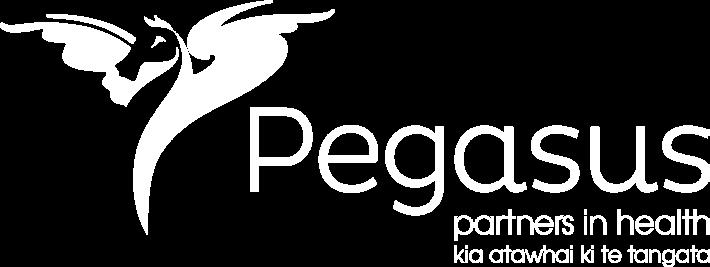PEGASUS 2025
Kia atawhai ki te tangata
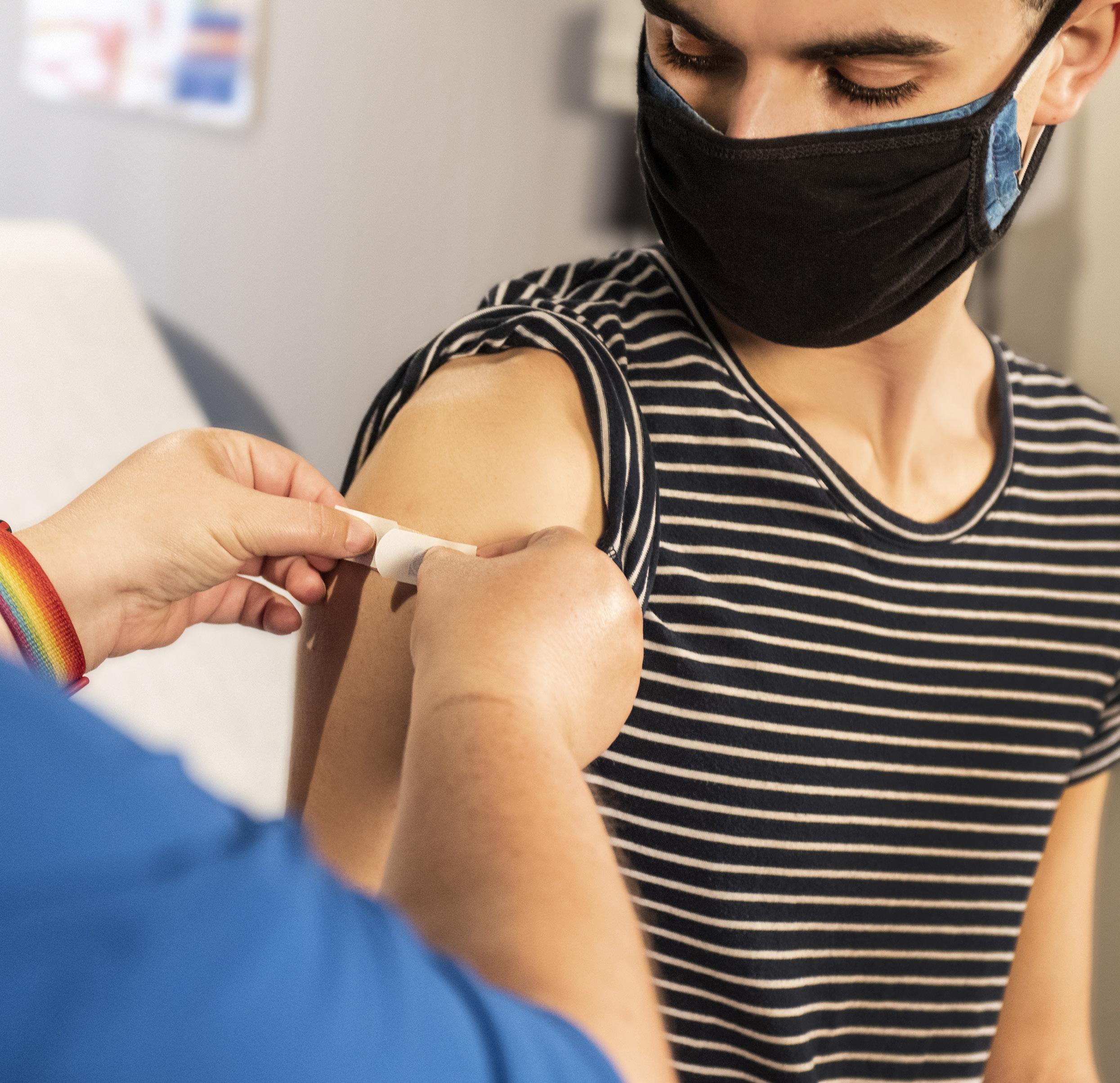
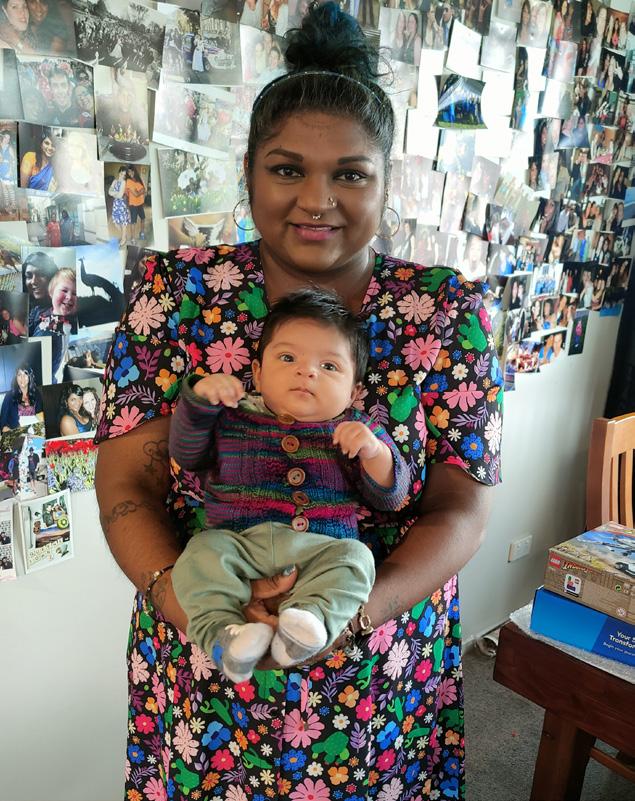
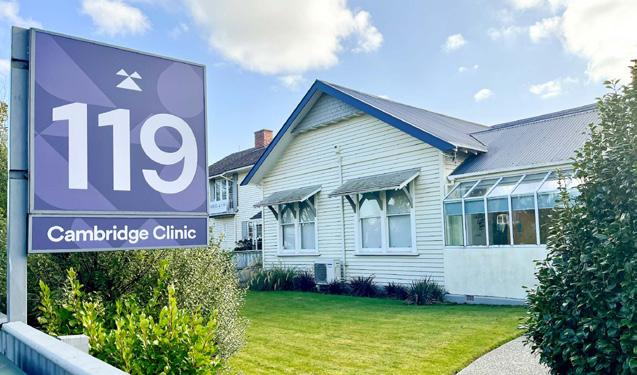
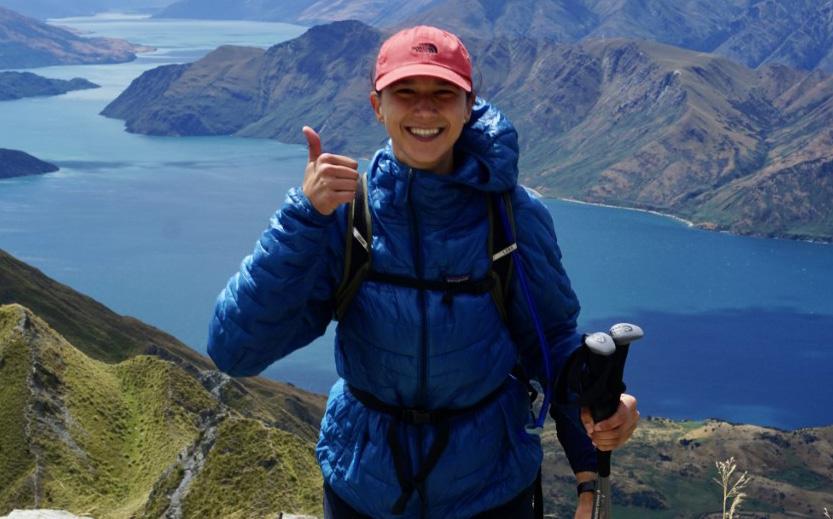

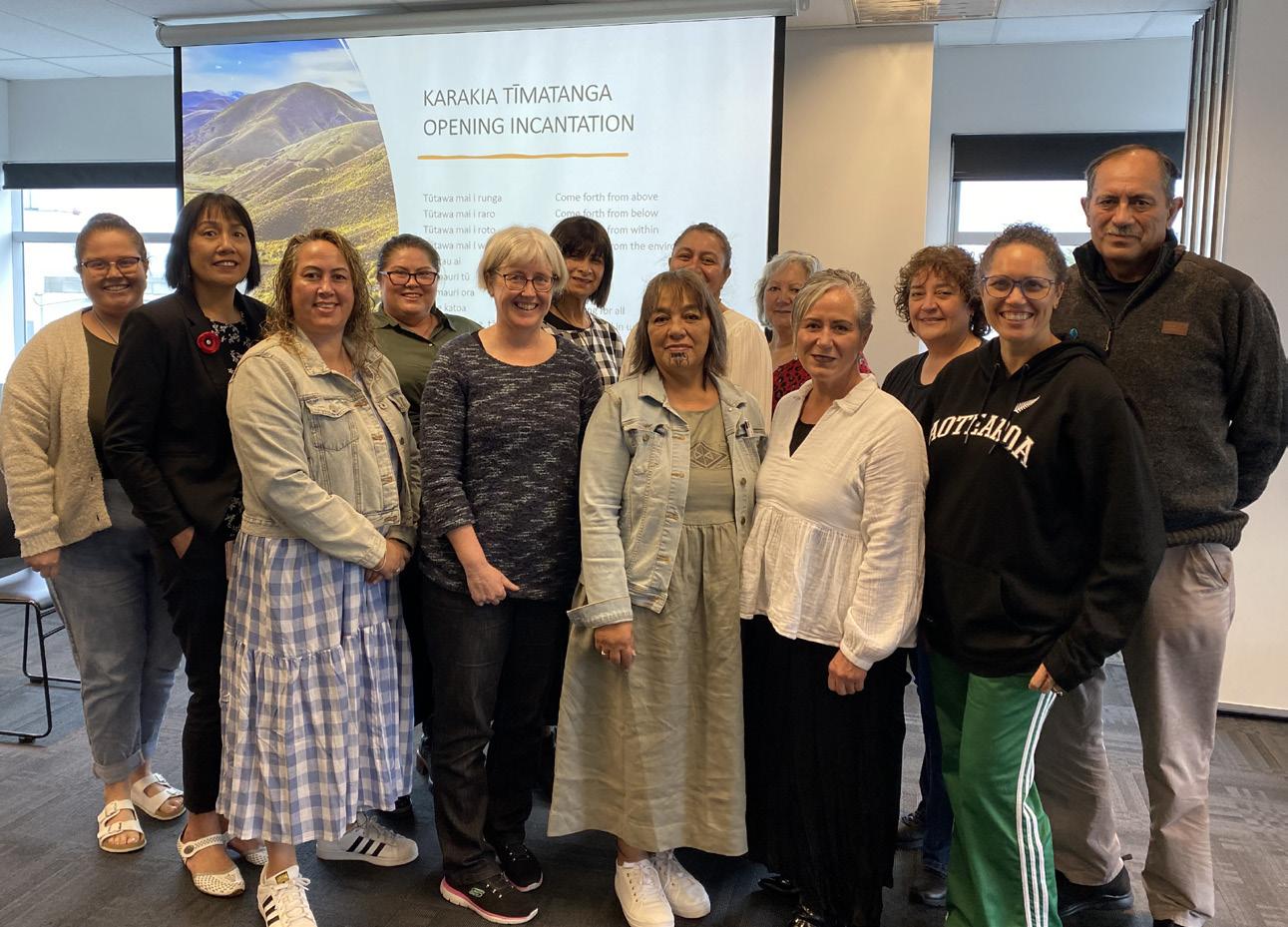
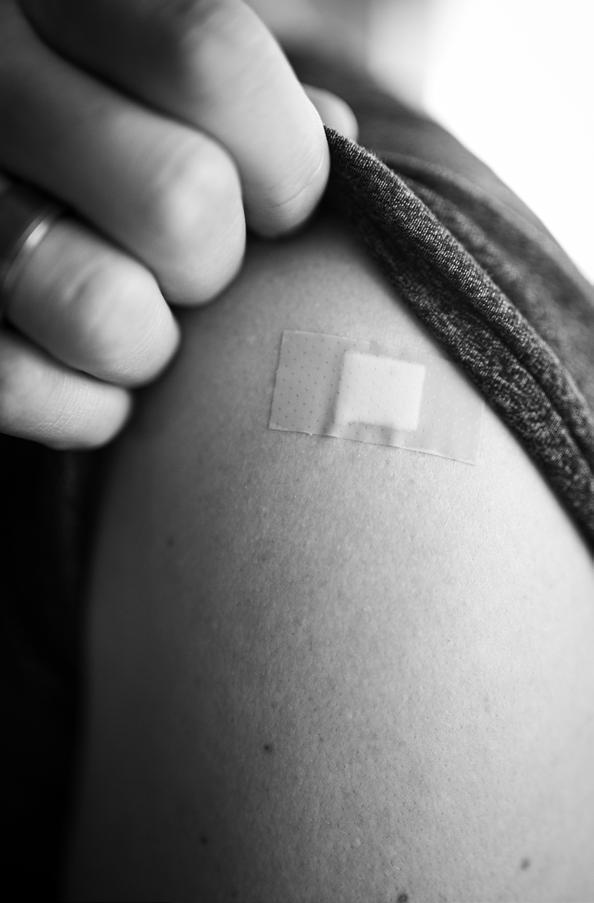








Tēnā koutou,
There is a large amount of uncertainty within the health system currently with the Health Reform seeing a lot of change at both a national and regional level. A key focus of Pegasus Health at this time is to ensure the consistency and dependability of primary health services for the people of Waitaha Canterbury.

In April, the National Immunisation Taskforce released a report containing wide-ranging recommendations on the future of immunisations in Aotearoa. The report highlighted that childhood immunisation rates are at an all-time low. This year, three babies have died from whooping cough in New Zealand.
In this edition of Pegasus 2025, we take a look at the issue of immunisation, with a focus on childhood immunisations. From whooping cough, to measles and flu, we encourage whānau to take action to ensure the health of their tamariki.
Ngā
mihi nui, LISA BRENNAN General Manager of Patient & Provider ServicesKo ngā pae tawhiti, whaia kia tata.
Ko ngā pae tata, whakamaua kia tina.
The potential for tomorrow depends on what we do today.
Dr Owen Sinclair is a paediatrician and chair of the National Immunisation Taskforce who is concerned about the low rates of childhood immunisation in Aotearoa. As an advisor to KidsHealth, he was instrumental in developing a new video that calls upon whānau to make sure that tamariki are immunised against this deadly disease.
“Measles has always been one of the proficient killers. It is extremely efficient and very contagious,” Dr Sinclair said.
Dr Sinclair referred to the 2019 measles outbreak in Samoa that saw 5,700 cases of measles and
83 deaths. In that event, a single case of the measles was transported to Samoa from Aotearoa and led to the country shutting down as it battled to curb the deadly spread of the disease.
“Immunisation rates in Aotearoa have fallen dramatically over the past five years and are at the lowest rate ever in our history,” Dr Sinclair said. “Within that, we see the lowest rates within our most vulnerable communities, including Māori and Pasifika.”
This video is designed to make the importance of getting vaccinated clear and gives friendly, easy-to-understand advice on what to do to ensure your tamariki are protected against measles.
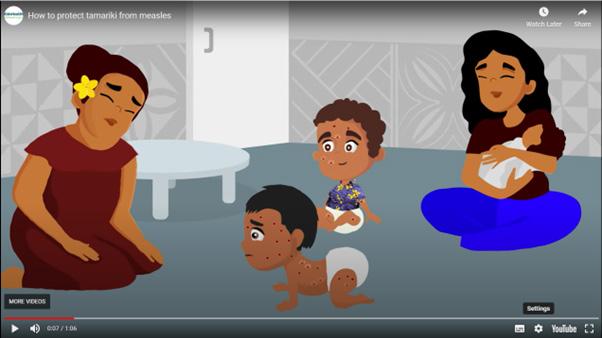
KidsHealth is a website that holds accurate and reliable health information that parents can trust. Developed as a partnership between The Paediatric Society of New Zealand and Manatu Hauora Ministry of Health, KidsHealth provides expert advice direct from paediatric consultants to help parents and whānau support the health and wellbeing of their tamariki and rangatahi.

Rohan Gopal Boyd received his sixweek immunisations in early May. His mother, Madhu, said making the decision to make sure Rohan was immunised was more a case of ‘why would you not?’ than ‘why would you?’
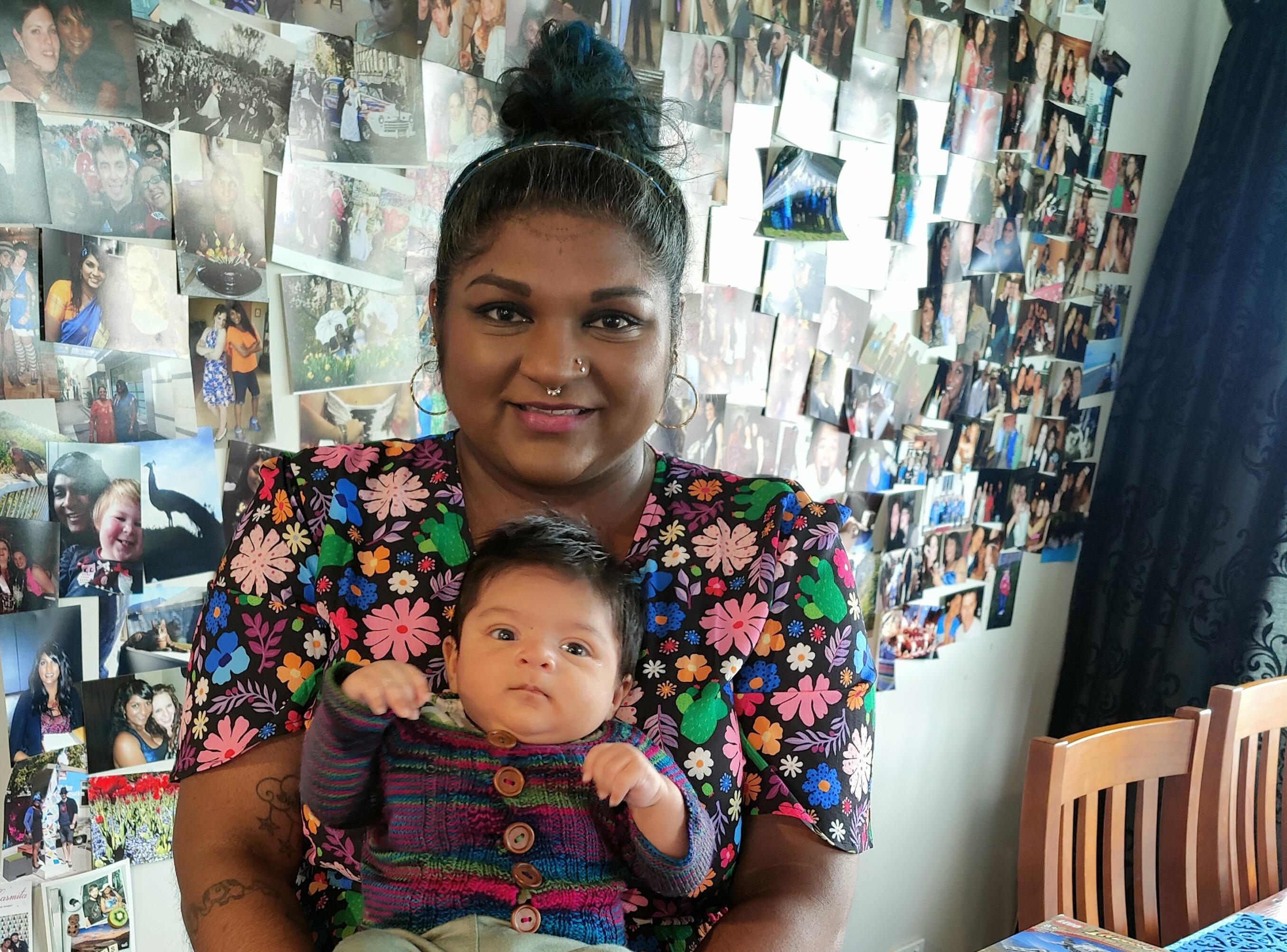
“I know he will be getting some antibodies from me, but if you can make sure your baby is fully protected, why would you not?” Madhu said.
Even before Rohan was born, Madhu was making sure that Rohan was getting the very best start in life by asking her parents to get the Boostrix vaccine for tetanus, diphtheria and whooping cough. As a first-time mother, she knew her parents’ presence and support were important in those first few weeks, but wanted to make sure that she was not taking any risks with Rohan’s health.
“Rohan’s going to be a very social boy. He is my parents first grandchild, and they have lots of plans to show him off. It was important to me to get
him vaccinated if he is going to be around a lot of people. It is not just about protecting him, but also protecting others,” Madhu said.
In addition to following the standard immunisation schedule, Rohan will also receive the Bacillus Calmette-Guérin (BCG) Vaccine for tuberculosis (TB). Madhu asked her midwife about getting the vaccine who referred her to the hospital to arrange this.
“My parents were back in India for a time a few years back and Mum caught tuberculosis then. It is recommended that babies who have regular contact with someone who has had TB get the BCG vaccine so we are making sure he will receive it as soon as he can,” Madhu said.
The three immunisations babies receive at six-weeks are:
• Rotavirus (oral)
• Diphtheria + tetanus + whooping cough (pertussis) + polio + hepatitis B + Haemophilus influenzae type b (Hib)
• Pneumococcal disease
Whooping cough, also known as pertussis, is a serious respiratory illness that can cause significant complications in infants and young children.
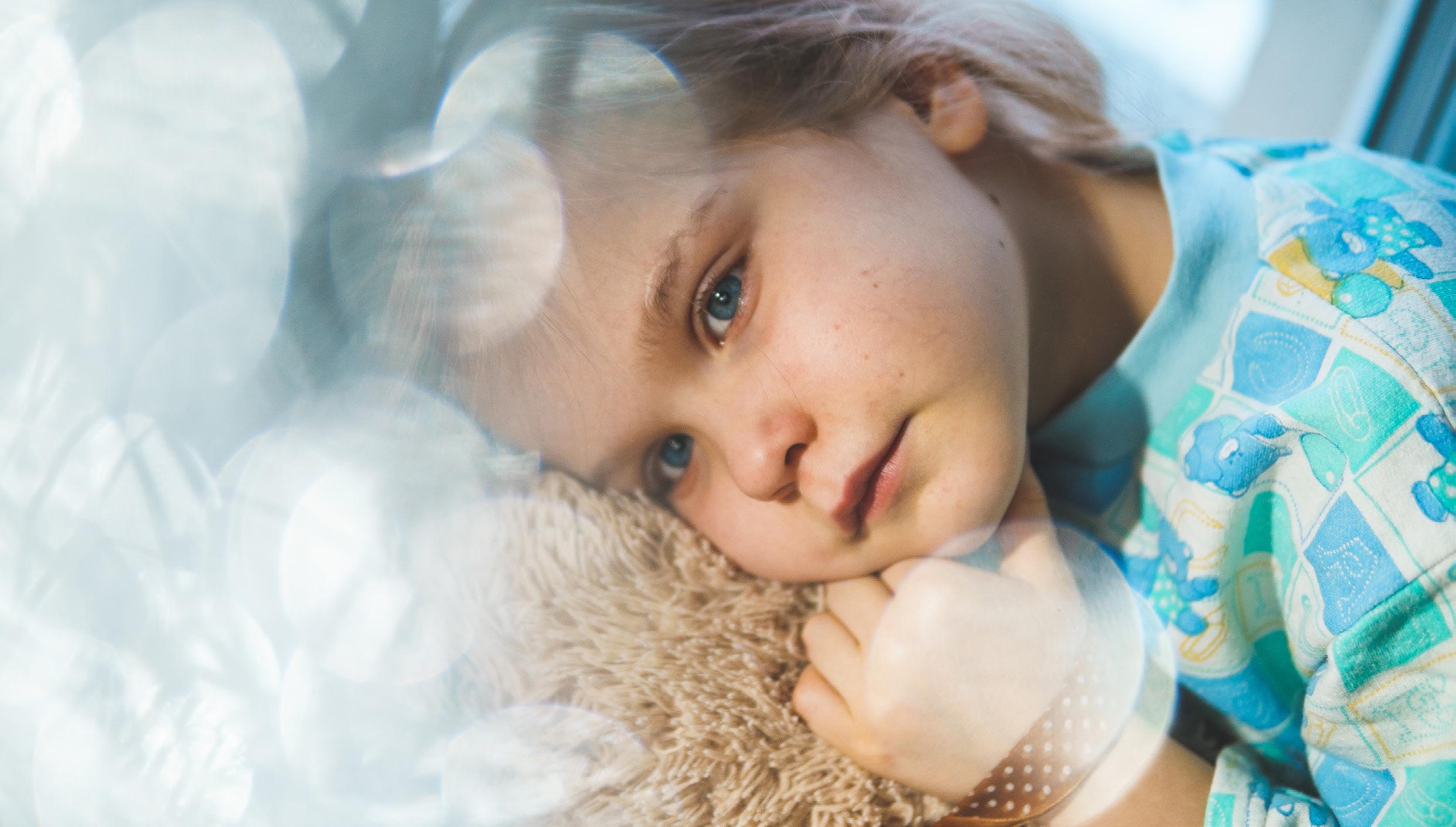
In recent months, New Zealand has seen a marked increase in the number of cases with, sadly, three reported deaths from pertussis in the early months of 2023. As a result, healthcare providers and healthcare clinicians are strongly encouraging community to be aware of the symptoms of pertussis and the importance of vaccinations, particularly for pregnant women and infants.
“Infants and our young are most vulnerable from the effects of Pertussis; however, adults are also vulnerable,” Director of Nursing, Michael McIlhone said.
Pertussis is highly contagious and can be easily spread through coughing
and sneezing. Infants under one year of age are particularly vulnerable, as they have not yet received their full course of vaccinations and their immune systems are not fully developed. During the last outbreak from 2017 to 2019, 50% of children under one who contracted pertussis required hospitalisation.
The symptoms of pertussis can vary, and infants may not present with the characteristic whooping cough. Some red flags to look out for include:
- Apnoea (Breathing stops)
- Dehydration (Caused by not enough oral fluids)
- Lethargy (Tired and listless)
- Fever (Very hot to touch)
- Reduced alertness and responsiveness. (Not as active as they normally are)
Free antenatal pertussis vaccination is available for pregnant women from the second trimester and is recommended to be given at least 2 weeks before birth. Boostrix® is also available for babies at six weeks, three months, and five months, with booster doses given at four and 11 years old. Adults between 45 and 65 years of age can also receive the vaccine.
With winter approaching, getting your flu vaccination now will help protect you before the weather gets cold. Administered early, it will help provide optimal protection for yourself and your whānau.
“It is best to get the flu vaccine as soon as you can. Winter is the time when you are most likely to come into contact with the flu,” Director of Nursing, Michael McIlhone advises. For the 2023 flu vaccine, certain groups are eligible for free immunisation:

- Tamariki aged 6 months to 12 years old
- Pregnant individuals
- Māori and Pacific people aged 55 years and older
- Everyone aged 65 years and older
- Individuals with underlying health conditions, including heart disease, cancer, diabetes, and serious asthma
- Individuals with mental illness or accessing mental health services.
If you have recovered from COVID-19 and are symptom-free after a minimum 7-day self-isolation period, you are able to receive the flu vaccine. To simplify vaccination efforts, the flu vaccine can be administered alongside the COVID-19 vaccine. “By offering the flu vaccine alongside the COVID-19 vaccine, we can save time and help safeguard the health of our communities,” Michael said. Individuals not eligible for free vaccination can still receive the flu vaccine at a cost ranging from $25 to $45.
Prioritize your health this winter - schedule a flu vaccination appointment with your healthcare provider or visit a local vaccination center. Remember, timely immunisation is key to minimising the impact of influenza.
This month we celebrated the incredible work of our family doctors by spending five minutes with two incredible general practitioners.
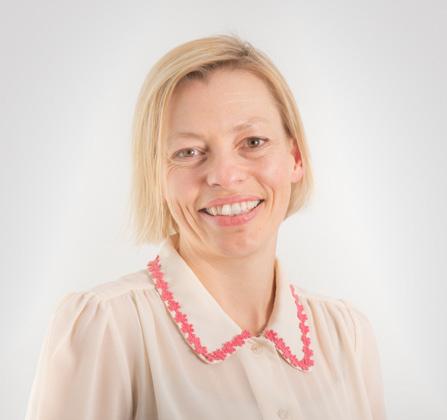
Dr Elizabeth Louden from St Martin’s Medical Practice has a passion for promoting holistic health which led her to organise the amazing Bloke’s Bash event. This event provided their male patients with a chance to explore a full range of health and wellbeing services.
Elizabeth has been in general practice for 14 years now and shared some of her highs and lows...
1. What’s the most rewarding thing about being a GP?
I believe being a GP is a real privilege and, for me, the best job in the world. The most rewarding aspect is connecting with people. I love the connection with my team members as well as colleagues in the wider health system. But most of all I enjoy
connecting with patients, hearing their stories, and supporting them with their health and wellbeing goals. The relationship I build with people over time is very special to me and I treasure it.
2. What’s been one of the big challenges with being a GP?
The biggest challenge about general practice right now is trying to provide the high standard of Primary Care I would like to within the current health model, which has not been adapted to meet the needs of the chronic and complex physical and mental health problems so many Tangata whaiora are facing.
3. Anything else you’d like to share?
A big shout out to my St Martins Medical Whanau! I am so fortunate to work with such authentic, caring and selfless people who share my passion for providing excellent Primary health care and having lots of fun along the way!
1. What inspired you to become a GP, and how did you get started in the field?
“That’s a funny question because as a child I used to faint every time I saw blood. “I’ll never be a doctor!” I said to my friends. Now, being a GP, I realise the variety of cases and the long-term relationship with patients are two key components that drew me to the speciality. And I can reassure you I’m immune to blood now.”
2. Can you describe a particularly rewarding experience you’ve had as a GP?
“As a GP every ‘little victory’ and grateful smile makes my day. If I were to share my most memorable experience, it would be after having seen 5 doctors for abdominal pain, a 9-year-old girl accompanied by her mother came to see me for advice. I quickly associated the pain with her limited diet which contained only chocolate mousse!”
3.What are some of the biggest challenges you face as a GP?
“I speak for all GPs across the world by saying high patient demand, staff shortages, and ‘doctor Google’.”
4.How has your role as a GP changed over the course of your career, and what do you see as the future of healthcare in our community?
“In my short career, it hasn’t changed that much yet. With an aging population and rise of chronic diseases we should focus more on prevention and collaborative care. With the increased workload I truly hope GP’s will not skip the time-consuming but valuable talk about lifestyle changes which can help patients with various aspects of health.”
5.What advice would you give to young people who are interested in becoming a GP?
“Always be curious and continue to learn. Go on adventures abroad and do volunteer work. This broadens your horizons, builds interesting connections, and is beneficial for personal growth.”
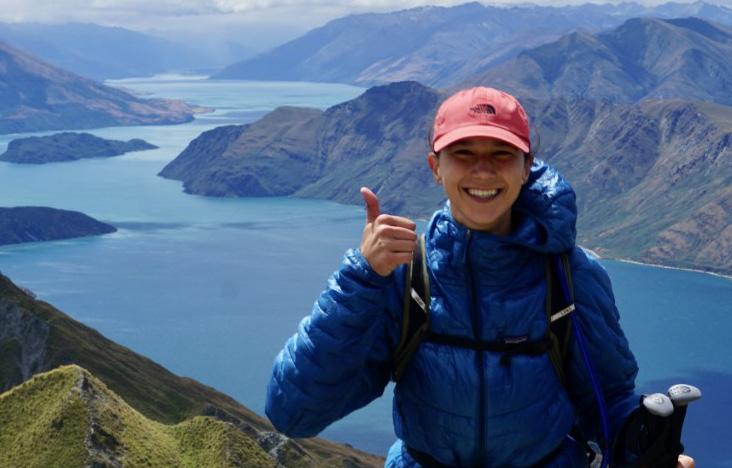
6. Lastly, what do you like to get up to in your spare time?
“I enjoy playing hockey and tramping so I believe I moved to the perfect country. I can’t get enough of the beautiful nature and the everchanging scenery.”
“I would like to give a shout-out to the team at Harewood Medical for all the hard work, dedication, and positive attitude. I feel lucky to have such great knowledgeable colleagues!”
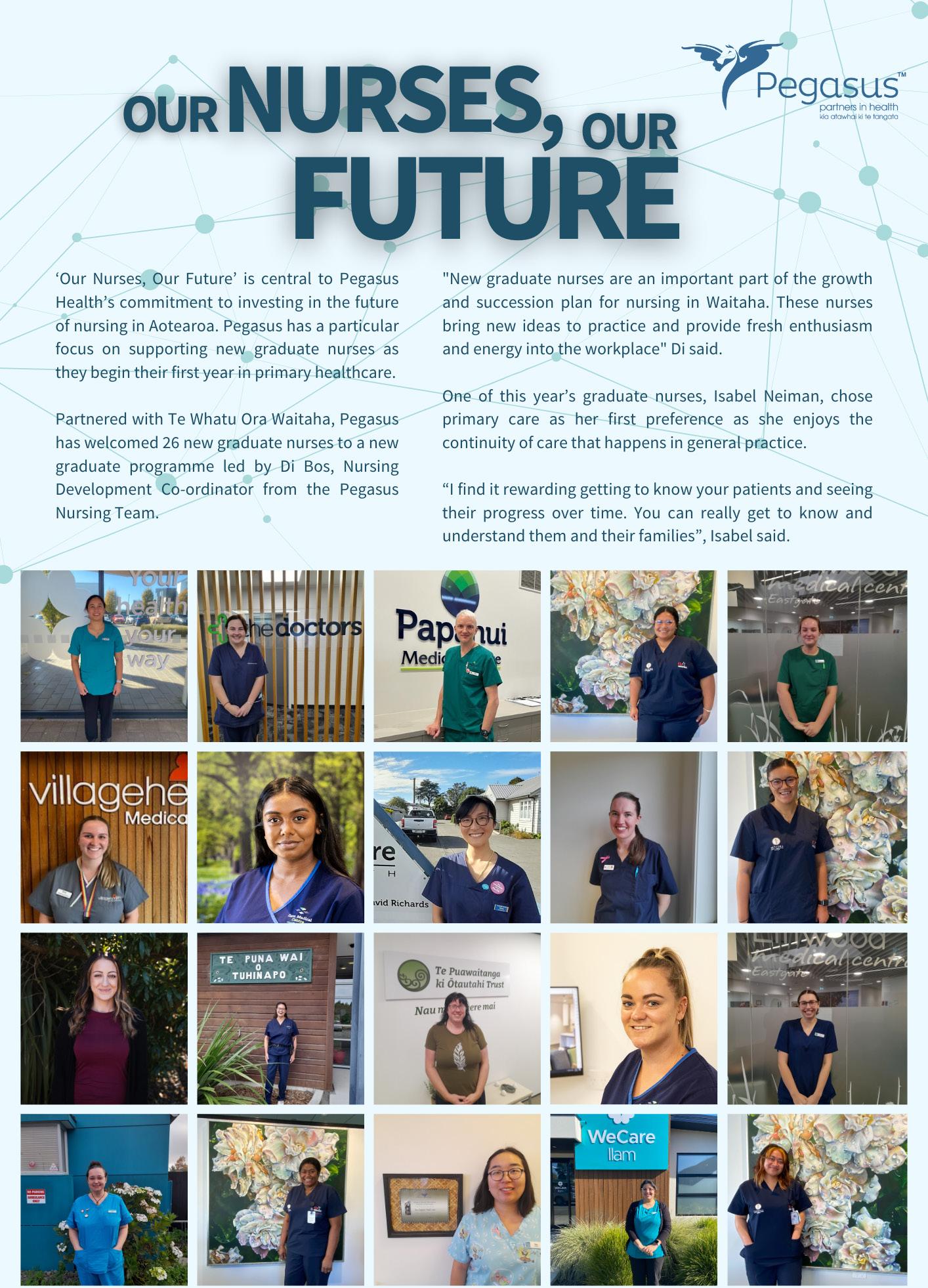
A new initiative to support Māori nurses across Waitaha is gaining momentum thanks to the efforts of Hayley Lotter (Muaūpoko), Nurse Educator at Pegasus Health. Nurses interested in being part of the tapuhi Māori rōpū met at Pegasus in late April to agree on a kaupapa for the group.
“The kaupapa is all about whakawhanaungatanga. To get to know who else is out there and to be there as a support and resource for each other,” Hayley said.
The number of Māori nurses working within the system is disproportionately lower than within the population. This is particularly true in primary heath.
Māori nurses from across the health
sector attended the hui, including nurses from Te Whatu Ora, Corrections, Ara, primary healthcare providers and non-government organisations (NGOs).
“To make nursing an attractive and safe space for Māori it needs to be culturally safe, it needs to be prioritised and it needs to be facilitated without barrier,” Hayley said.
The atmosphere within the group was one of excitement and momentum. By creating this peer group, Hayley believes that Māori nurses can take the shared mātauranga (knowledge) and whakaaweawetia (influence) back to their mahi and help facilitate change to make things better for Māori whānau.
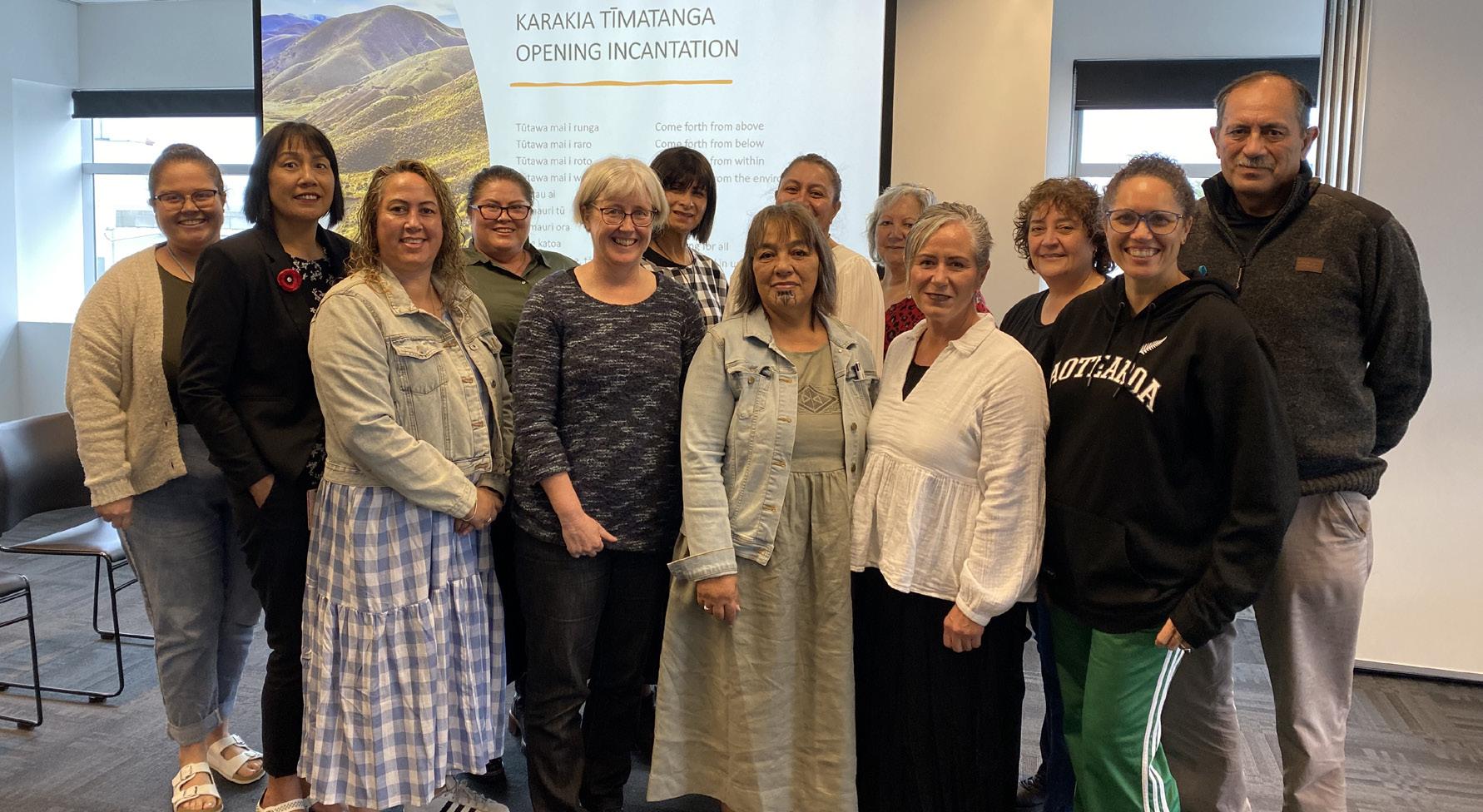
“With the changes to the health system, Te Tiriti o Waitangi needs to be foundational and that instead of ‘working towards’ equity we should prioritise equity in full measure,” Hayley said.
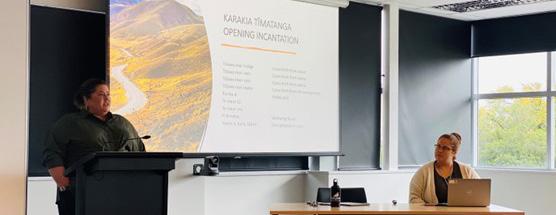
The Cambridge Clinic is a free, 24/7 service for anyone aged 13 years or older who has experienced sexual harm either recently or in the past.
Cambridge Clinic is dedicated to helping survivors of sexual harm. The clinic provides a safe, nonjudgemental and confidential space for patients to seek help and regain control over their lives. They provide both medical care and emotional wellbeing support.

They can also offer forensic assessments, which involves the collection of forensic samples that may assist in a police investigation. This may be appropriate if the assault was less than 7 days ago and the patient either wants police involvement or is unsure about police involvement but wants to keep their options open. The clinic sees many patients who are unsure about whether they want the police involved, and the clinic can walk survivors through their choices without any pressure to involve police.
“Unfortunately, sex doesn’t always happen with consent. Sexual harm is a serious issue that affects many people in Aotearoa. Sexual assault doesn’t always occur in the way people expect and the majority of survivors of sexual harm have been assaulted by someone they know and the assault often doesn’t involve any form of physical violence. Sexual
harm commonly occurs when someone is unable to provide consent. This may be due a number of reasons, but is most commonly seen when someone is impaired by alcohol or drugs that may have voluntarily or involuntarily consumed,” said Jess Tucker, Clinical Director of Cambridge Clinic. Patients can refer themselves to the clinic, or referrals may be made by police, a healthcare provider or support services.
The clinic offers a holistic package of care to survivors that may include referrals to other organisations or professionals, such as social workers, ACC, AVIVA or mental health services, including the Pegasus Health Rongoā Kōrerorero Talking Therapy programme.
Cambridge Clinic is patient-led, and whilst the provision of some information back to a patient’s general practitioner (GP) is encouraged, this is only done with the survivor’s consent. Some patients prefer their GP not to know, and the clinic respects their wishes.
“People are often carrying a lot of weight over what happened to them, they often have concerns around whether they themselves are to blame in any way,” Jess said. “We just want to help lift that weight. We often see people walk out of here a lot lighter than when they arrived.”
The clinic’s mission is to give control back to survivors after sexual harm. “Even if they’re in doubt about whether they’ve been sexually assaulted, we can still see them and provide support,” Jesssaid.
If you or someone you know has experienced sexual harm, you can contact national hotline Safe to Talk on 0800 044 334 or text 4334, or visit the Cambridge Clinic website for more information.
The Samoan community in New Zealand has been facing challenges in keeping their language and culture alive. Many families are concerned about not being able to speak their native language and are looking for ways to preserve it. That is where the Pi Faitau colouring book comes in.

Pi Faitu was written by TUSIA collective, an indigenous language group created by publishing house Flying Geese. TUSIA aims to support indigenous languages across Aotearoa and invite communities to build their own collective bookshelf.
The book features the Samoan alphabet as colouring pages and is a wonderful tool to help children learn the language and keep it alive. Nurses who run B4 School checks, have ordered copies of the book and are giving them out to Pasifika children.

“The language brings elders and children together,” Karen Carpenter, Youth Residence and B4 School Check Registered Nurse, said. One grandmother shared that she gave Pi Faitau to her granddaughter to help her learn the language and keep it alive. She knows firsthand the importance of the Samoan language, as her mother lost it and felt embarrassed when she returned to Samoa and could not speak it.
The language is not only important for communication, but it also brings families and communities together. Many Samoan families have migrated to New Zealand, and not all parents and grandparents live there. The Pi Faitau colouring book is an excellent way to help educate children in their language.
Aotearoa New Zealand is celebrating World Smokefree May, a monthlong event leading up to World Smokefree Day on May 31st. The annual celebration aims to raise awareness of the smokefree kaupapa and contribute to the achievement of the Smokefree 2025 goal. This goal, established in 2011, aims to have less than 5% of New Zealanders smoking by 2025.
Pegasus Health is actively supporting the Smokefree 2025 goal and the recently passed Smokefree Environments and Regulated Products (Smoked Tobacco) Amendment Bill. The bill aims to reduce the availability, appeal, and addictiveness of smoked tobacco products, and create a smoke-free generation by amending the age limit for sale of smoked tobacco products.
“Tobacco products kill about 4,500 to 5,000 people every year. It is encouraging to see our Pegasus patients are smoking less. Over the past three years, we are especially encouraged to see a decline in smoking rates among our Māori and
Pasifika patients – from 28% to 20% and 19% to 14%, respectively. Patients switching from smoked tobacco to vaping are contributing to this decline,” Sue Aitken, Team Leader, Health Promotion Programmes said.
To achieve the Smokefree 2025 goal, the New Zealand government is implementing the Smokefree Aotearoa 2025 Action Plan. This plan includes changes to legislation, such as reducing the number of retailers able to sell smoked tobacco products from 6,000 to 600, reducing the amount of nicotine allowed in smoked tobacco products, and prohibiting the sale of smoked tobacco products to anyone born on or after January 1, 2009.

“We continue to show our support by promoting our positions on smoked tobacco and vaping, and being an active member of our local Smokefree Canterbury Coalition. We look forward to seeing the changes from the new legislation reflected in our Waitaha Canterbury community and across wider Aotearoa New Zealand,” Katie Brown, Population Health Specialist at Pegasus Health said.
Pegasus Health encourages individuals who want to stop smoking to contact Te Hā –Waitaha Smokefree Support at 0800 425 700 or smokefree@cdhb.health.nz.
CELEBRATING WORLD SMOKEFREE MAY AND THE PASSING OF NEW SMOKEFREE LEGISLATION
1 2 3 4

Put on your favourite album or playlist and jam out
Spend time outdoors
Go for a walk outdoors, have a picnic by the lake or go for a hike
Watch a movie
Have a movie marathon with your all time favourites

Take a hot shower or bath
Relax in a soaking bath with epsom salts or a bath bomb or take a nice hot shower to relax and refresh
5 6 7 8
Meditation is a great way to be present and to help calm stress and anxiety Try a 10 minute guided meditation
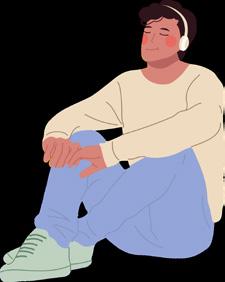
Grab out your bike or scooter and go for a ride in the countryside or beach, somewhere scenic and enjoy the views
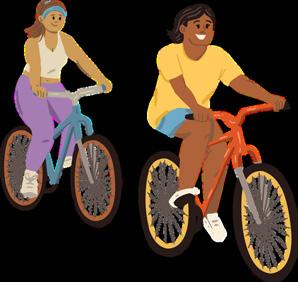
Stay connected with your friends and reach out to a friend who you have not spoken to in a while
Grab a book old or new and some blankets and pillows and get cosy on the couch
Kia mahana kia hauora warm & well
Pegasus 2025 is produced by the Communications Team at Pegasus Health (Charitable) Ltd. Content within Pegasus 2025 newsletters has been included with the approval of content providers therefore please contact us if you wish to reproduce or alter and transmit any of the information or images contained within. Contact communication@pegasus.org.nz
